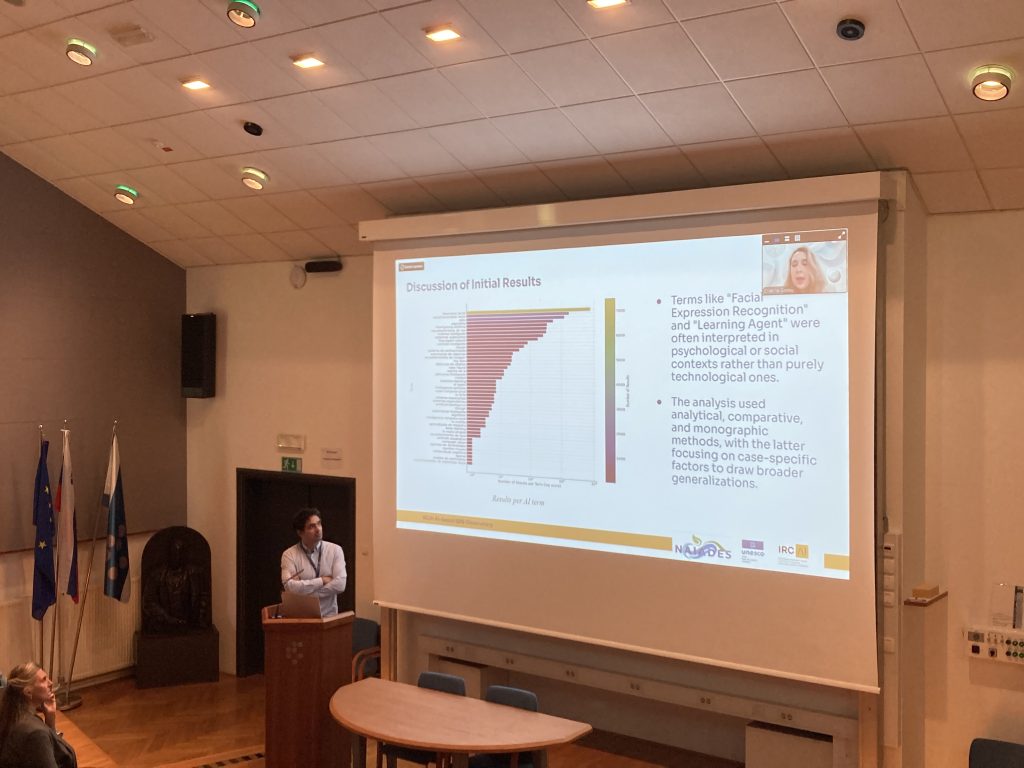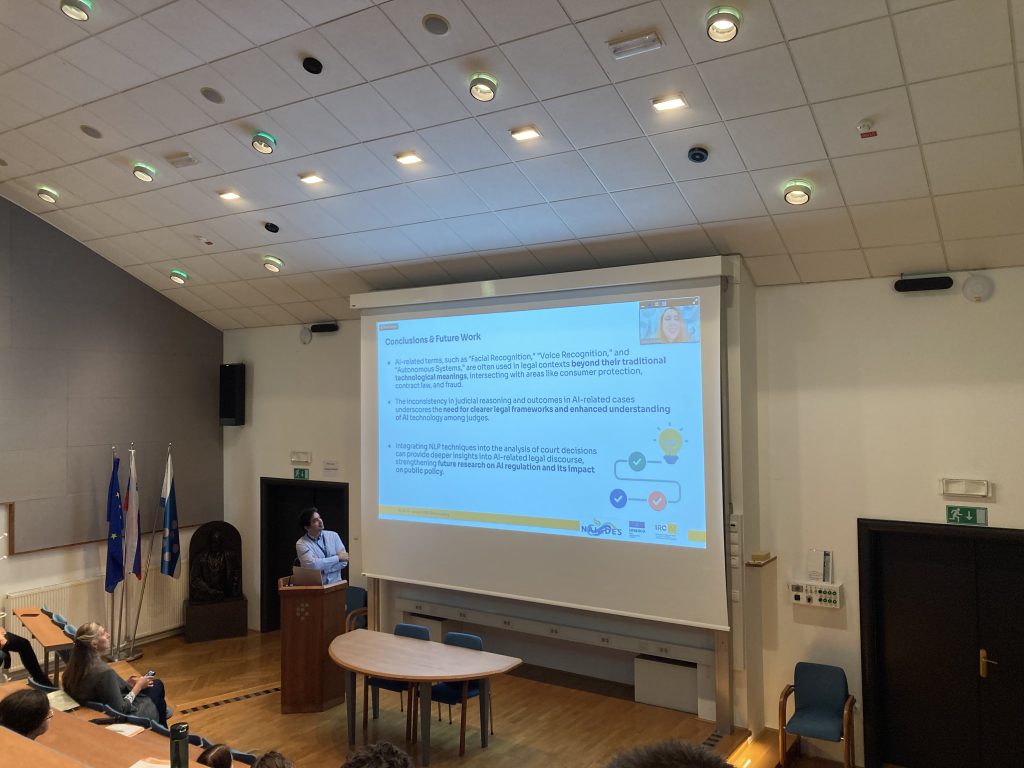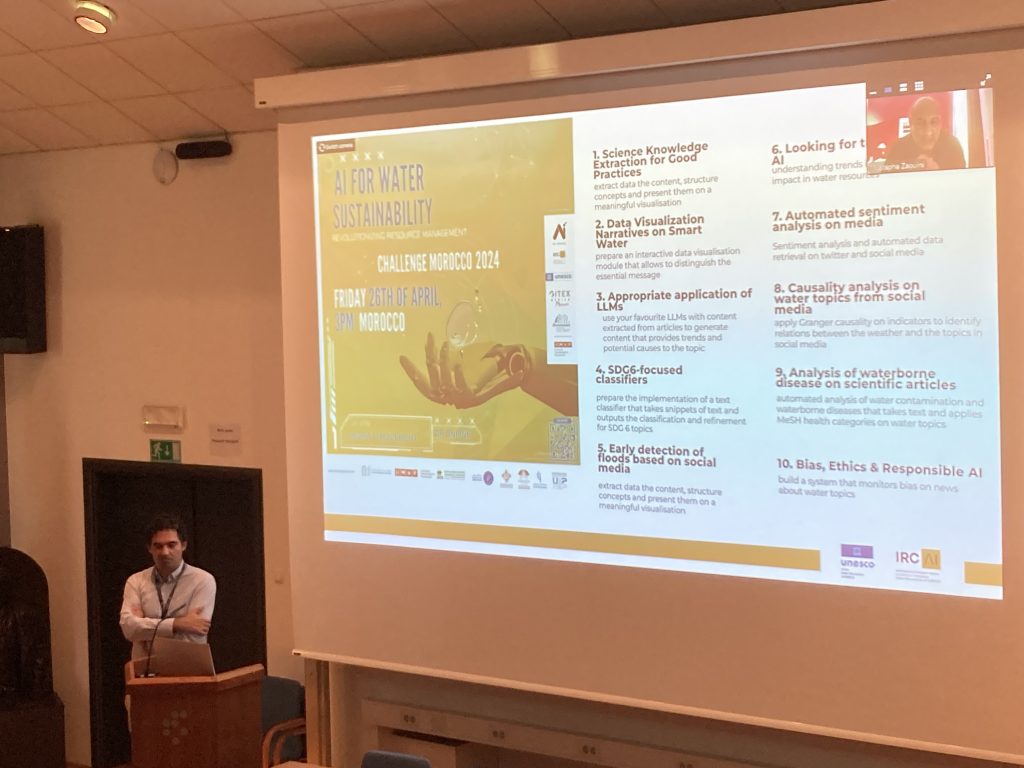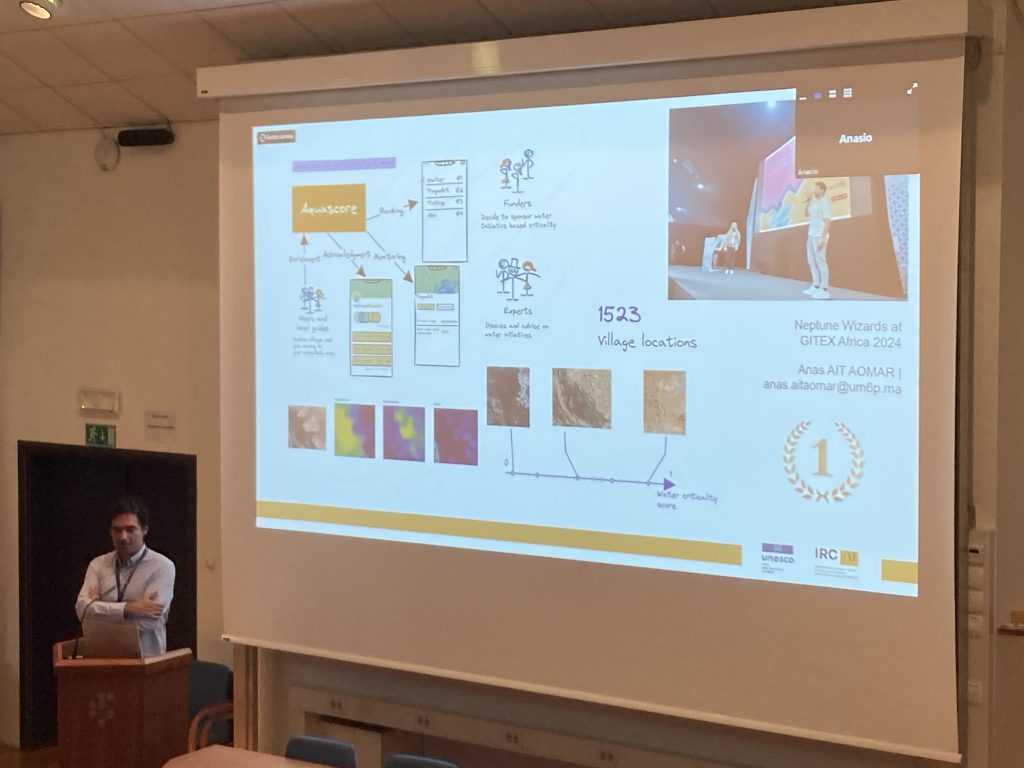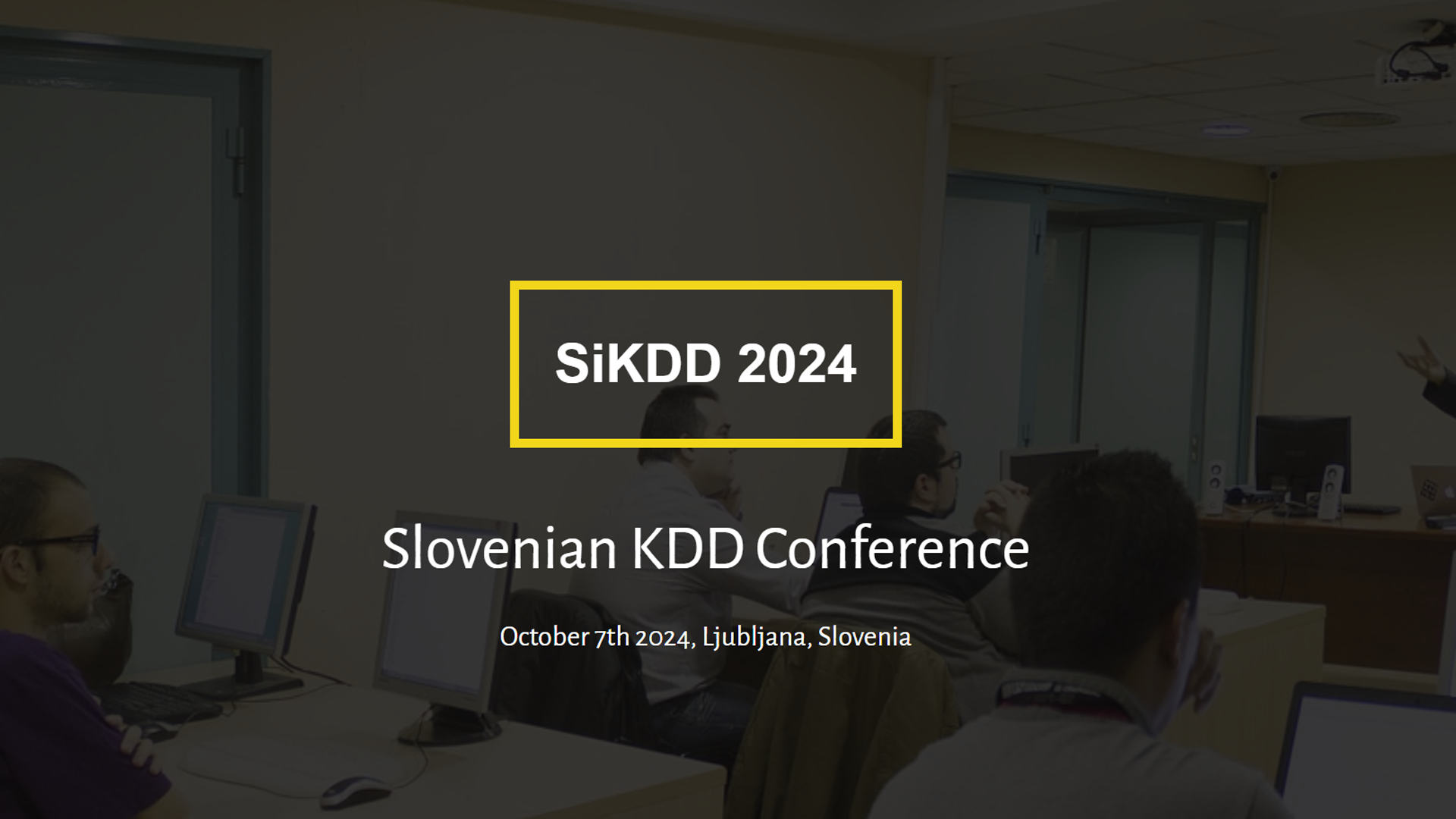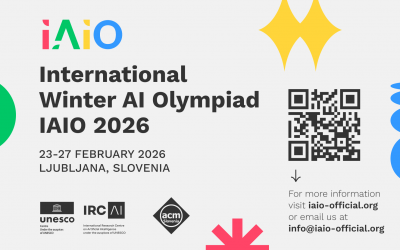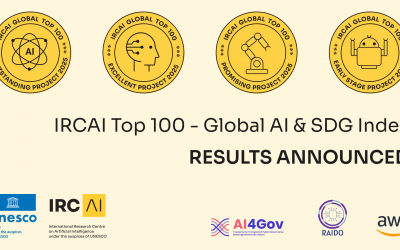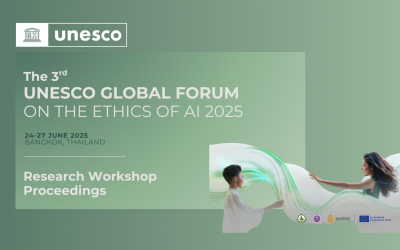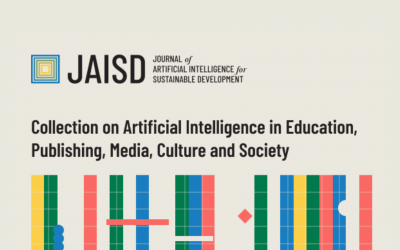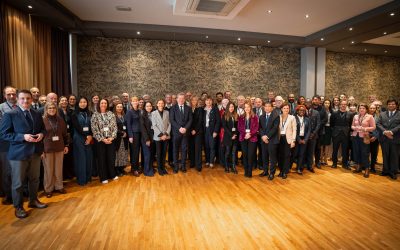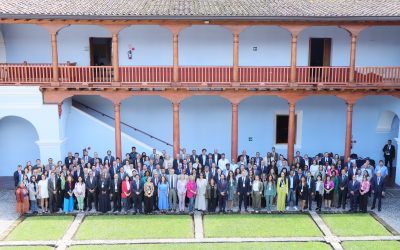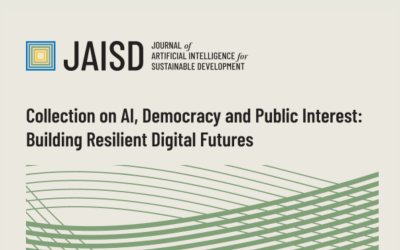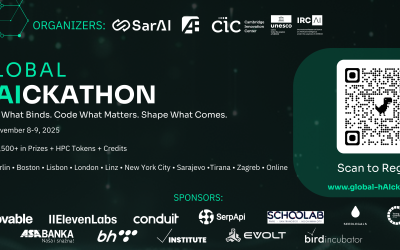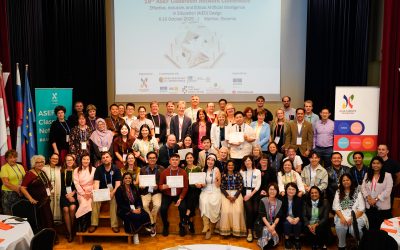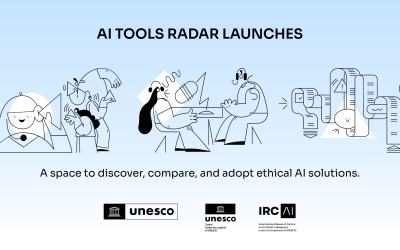This week, IRCAI showcased new research findings and ongoing projects at the Slovenian Conference for Data Mining and Data Warehouses (SiKDD 2024), an international conference organized annually by dr. Dunja Mladenić and Marko Grobelnik, two eminent AI experts. Dating back to 2000, SiKDD has a long history of high quality research on AI methodologies and applications, and is part of the International Multiconference Information Society, hosted by the Jožef Stefan Institute.
This year, we presented four research papers, delving into the latest AI advances and its applications in education, sustainability and poverty reduction.
“Empowering Open Education Methodologies with Artificial Intelligence”
Authors: Tel Amiel, Antonio J. Moraes Neto, Joao Pita Costa, Anja Poljanar, and Mitja Jermol
The paper explores the use of AI to enhance educational methodologies by customizing learning experiences. The authors shared insights from the Slo2Svet project, a collaboration with research institutions in Brasília, Brazil, to explore AI’s potential to improve inclusivity in education. This research also highlighted the outcomes of Prof. Antonio Moraes Neto’s recent research visit to Slovenia.
Link to the paper: https://aile3.ijs.si/dunja/SiKDD2024/Papers/IS2024_-_SIKDD_2024_paper_16.pdf
“Addressing Water Sustainability in North Africa with Artificial Intelligence”
Authors: Mustafa Zaouini, Joao Pita Costa, Manal Cherkaoui, Hanaa Hachimi, M. Wahib Abkari, Kamal Gourari, Hatim Lachheb and Jad Tounsi El Azzoiani
This paper presents AI-driven solutions for water sustainability challenges in North Africa, showcasing projects like AquaScore and AquaSense, built during the AI in Africa challenge held during the GITEX Africa. During the presentation we pre-announced a global AI challenge focused on SDG 11 (Sustainable Cities and Communities), to be launched at GITEX Global Dubai in February 2025.
Link to the paper: https://aile3.ijs.si/dunja/SiKDD2024/Papers/IS2024_-_SIKDD_2024_paper_17.pdf
“Predicting Poverty Using Regression”
Authors: Luka Urbanč, Marko Grobelnik, and Joao Pita Costa
The paper presents a groundbreaking AI initiative aimed at predicting poverty. Using AI-driven regression models, the team identifies key indicators that influence poverty worldwide. The paper is part of IRCAI’s efforts to build an Observatory for SDG 1 (No Poverty), supported by the Future of Life Institute.
Link to the paper: https://aile3.ijs.si/dunja/SiKDD2024/Papers/IS2024_-_SIKDD_2024_paper_20.pdf
“On the Brazilian Observatory for Artificial Intelligence”
Authors: Rafael Meira Silva, Cristina Godoy Oliveira, Luiz Costa, Joao Paulo Candia Vieira and Joao Pita Costa
The paper provides in-depth details about the Brazilian AI Observatory (OBIA), an integral part of Brazil’s Artificial Intelligence Plan (PBIA), aiming to be the leading Brazilian platform for monitoring AI applications. It discusses OBIA’s efforts with regards to sustainable development, government engagement, investment, and societal impact.
Link to the paper: https://aile3.ijs.si/dunja/SiKDD2024/Papers/IS2024_-_SIKDD_2024_paper_18.pdf
By presenting these four papers, IRCAI demonstrated its commitment to using AI to address global sustainability challenges. Some of these research findings were developed through the European Commission Horizon Europe projects like AI4GOV, ELIAS and RAIDO. Nevertheless, IRCAI highlighted some of its successful international collaborations, which are key for fostering interdisciplinary exchanges to develop most innovative technologies.
More about the SiKDD conference: https://aile3.ijs.si/dunja/SiKDD2024/index.html
More about the International Multiconference Information Society: https://is.ijs.si/?lang=en
